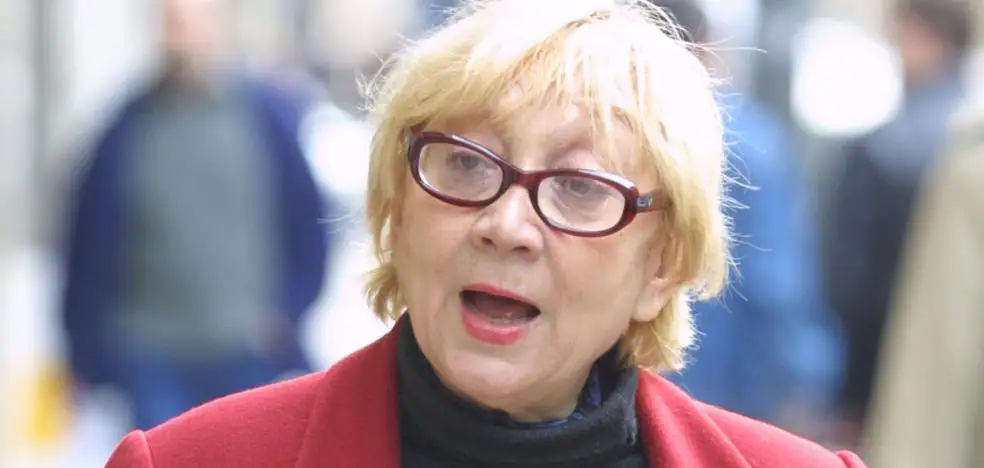Born a hundred years ago, the director of ‘Calle Mayor’ and ‘Death of a cycling’ pioneered international projection who fought against Franco’s censorship and believed in the revolutionary nature of cinema
There are three totemic ‘berry’ in Spanish cinema: Buñuel, Berlanga and Bardem. The son of comedians, member of an acting family that ends for now with his cousins Javier and Carlos Bardem, Juan Antonio Bardem was the most politicized and irreducible of the three directors, a filmmaker who clung to the clarity of his personal discourse that history does not. He has done full justice. He made his debut together with Luis García Berlanga – with whom he signed the script for Bienvenido Mr. Marshall, until he directed two fundamental films of our cinema in the early 1950s: ‘Death of a cycling’ and ‘Calle Mayor’. The communist militancy and the didactic and ideological content of his work gave him so many problems with censorship that his subsequent filmography is a flurry of food co-productions, frustrated projects and thesis films, always with the aim of being useful, testimony, critical and social. This Thursday would be 100 years old.
Bardem died on October 30, 2002 at the age of 80, just months after receiving an Honorary Goya that paid off an immense debt to the Film Academy. He knew he was one of the great forgetfuls of post-Franco cinema, though his cranky tone was closer to provocative longing than bitterness. “Since transvestites, drug addicts, fags or murderers are not in my scripts, but normal men and women, they are not interesting. What’s going on now is Tarantino and those things,” he complained to this journalist at the time. Son of actors Rafael Bardem and Matilde Muñoz Sampedro and brother of actress Pilar Bardem, his two children have also followed in his footsteps in cinema: Miguel as a director and Juan as a composer of soundtracks.
Born in Madrid in 1922, Juan Antonio Bardem studied agricultural engineering and was part of the first promotion of the official film school. Marked by neorealism, he began working as a screenwriter on several projects that did not see the light of day until, in collaboration with his fellow student, Luis García Berlanga, he wrote and co-directed ‘That Happy Couple’ in 1951. Together, they penned the script for “Welcome Mister Marshall,” a happy censorship challenge that captured the spirit of a nation sunk in post-war grayness, waiting for the Americans with bread under their arms. In 1953 he made his solo debut with ‘Comics’, which reflects the world of the theater and in which he records many of his family memories. Two years later, ‘Death of a Cyclist’ makes him one of the most recognized directors thanks to the Critics’ Award at Cannes. Apparently a story of adultery in which two lovers let a man die, ‘Death of a Cyclist’ is the first clearly political film in his filmography, in which he alludes to his communist militancy.
That same year, Bardem promotes the Salamanca Conversations, which brought together a new generation of directors who advocated a change in Spanish cinema. With ‘Calle Mayor’ he triumphed in Venice and began his problems with Franco’s censorship, whose critical reading with the regime he now managed to see in this adaptation of a work by Carlos Arniches. The director is forced to include a prologue to make it clear that the sclerotic provincial society in the film, shot in Logroño, could exist in any country. In the 1960s he signed co-productions with Mexico, Argentina, France and Italy. In our country, he accepts commissioned films with a commercial vocation, such as ‘Varietés’, at the service of Sara Montiel, or ‘The Corruption of Chris Miller’ and ‘The Power of Desire’, trying to erase Pepa’s image as child prodigy Flowers, Marisol. Already in the democracy, their attempts to create an engaged cinema with a strong social content, with titles such as “The Bridge” or “Seven Days of January” are revived. In 1988 he made an unforgettable series for Spanish television: ‘Lorca, the death of a poet’.
Juan Antonio Bardem belongs to an intermediate generation, which came late in neorealism and was vague before the Nouvelle. His films are generally pessimistic and his characters seem doomed to failure. They denounce a poorly made world, where people, institutions and social classes stagnate, with no possibility of change. His shots point towards the upper bourgeoisie, but also towards the middle class. The director of the disastrous ‘Final Result’, the conclusion of his filmography in which he directed Mar Flores in 1997, was a pioneer as he was one of the first Spanish directors with international projection. The Spanish Film Archive will be reviewing all of its work in June, July and August, and this Thursday it will be celebrating a sound fiction based on the never-recorded script for the sequel to ‘Calle Mayor’. Likewise, the FlixOlé platform premieres ‘Comics’ and hosts the director’s most important titles, including ‘La Vengeance’ (1958), a parable about national reconciliation that Bardem had to capture in the 1930s and which became the first Spanish film to was nominated for an Oscar.
Source: La Verdad
I am an experienced and passionate journalist with a strong track record in news website reporting. I specialize in technology coverage, breaking stories on the latest developments and trends from around the world. Working for Today Times Live has given me the opportunity to write thought-provoking pieces that have caught the attention of many readers.



